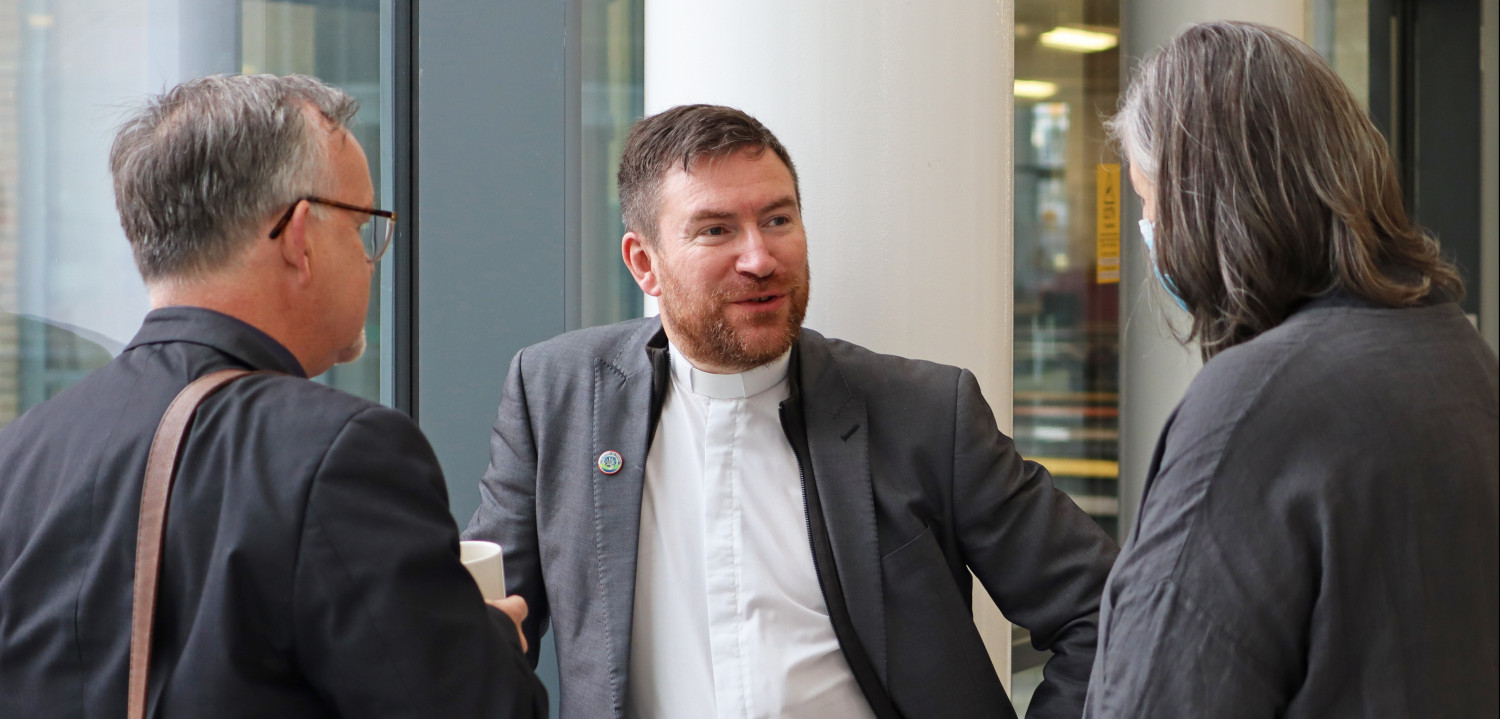
This is becoming an area of swiftly increasing focus for the Diocese of Durham, not least as a response to national initiatives – the Clergy Covenant.
The wellbeing of our clergy is important both in its own right – we are all called to life in all its fullness in Christ – but also, because clergy who are thriving are also clergy who are effective in the growth of the Kingdom of God.
Wellbeing is a collaborative task, with core responsibility resting on the individual minister to care for themselves as they care for their neighbours.
The diocesan officers support clergy in a number of ways:
- The biannual MDR with a member of the Bishop’s senior staff is an opportunity for clergy to talk honestly and directly with senior colleagues about their own wellbeing; the MDR includes specific questions about wellbeing. In alternate years clergy are offered a peer review with a trained reviewer, who might be ordained or might be a lay person with particular gifts in this area. This is a simpler process of reflection with a colleague about how life and ministry are developing. These non-hierarchical conversations have proved to be very helpful. The MDR process generates outcome actions which the Diocesan officers are committed to supporting
- Through the CMD programme, there are regular opportunities for refreshment, including two quiet days a year, and specific training in wellbeing
- The CMD budget provides a modest grant to help with an annual retreat and in particular circumstances will support a longer retreat
- The Diocese sponsors five sabbaticals each year. The details of these can be found on the sabbatical page, but in broad outline, they are offered to clergy who have undertaken a substantial period of service and are recommended for a sabbatical within the MDR process. The Diocese provides both planning support and financial assistance
- Diocesan officers recommend that clergy, especially at times of transition, make use of professional conversation. We can connect clergy with mentors or work consultants or life coaches. Please contact the Ministerial Development Advisor, the Revd Canon Dr Alan Bartlett
- Clergy are also recommended to have a spiritual director/accompanier. Contact with potential spiritual directors can be made through St Antony’s Priory - or through conversation with the Ministry Development Advisor
- The Diocese provides a subsidised and confidential counselling service. This is accessed through the Bishop’s Advisor in Pastoral Care and Counselling, Mr Simon Rose. Contact Simon on Simon.Rose@durham.anglican.org / 07746 846317.
-
For clergy with school and university age children, the Lord Crewe's Charity provides financial support.
-
In cases of financial difficulty, clergy are encouraged to explore possible sources of support, not least the Clergy Support Trust . The Bishop of Durham also holds in a discretionary fund an annual grant from the Henry Smith Charity programme, which may be accessed by clergy serving in parochial ministry. If you wish to explore your eligibility for help through this fund, please speak in the first instance to your Archdeacon.
Our Bishops take their responsibility as shepherds of the shepherds seriously and are available for personal conversation when needed.
Clergy Sickness
There is a Diocesan Sickness Policy, which you can download here and you can download a Statutory Sick Pay Self-Certify Form here.